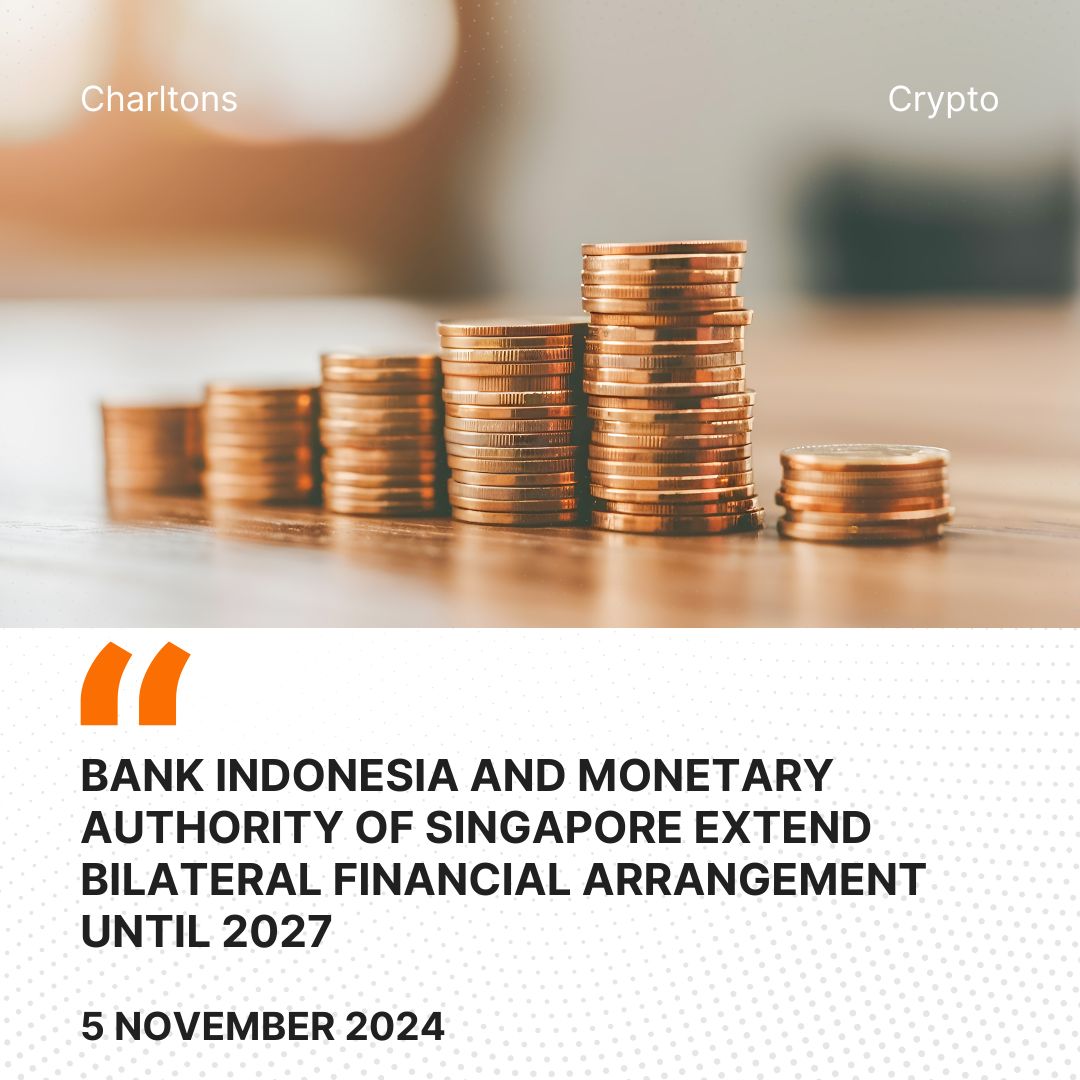
On 4 November 2024, Bank Indonesia (BI) and the Monetary Authority of Singapore (MAS) announced an extension of their bilateral financial arrangement, now set to last until 1 November 2027. The extended three-year period, a shift from the previous one-year renewal cycle, shows the deep financial cooperation between the two central banks as they work together to support monetary and financial stability amid global economic uncertainties. This decision highlights the resilience of the financial partnership between Indonesia and Singapore, positioning both nations to better withstand potential macroeconomic challenges.
The bilateral arrangement consists of two core agreements. The first is a local currency bilateral swap agreement that enables the exchange of local currencies, allowing each central bank to access up to SGD9.5 billion or IDR100 trillion from the other. This arrangement provides both central banks with flexibility in managing local currency needs, bolstering financial stability by ensuring liquidity in times of market fluctuations.
The second part of the arrangement is a bilateral repo agreement valued at USD3 billion, allowing both central banks to conduct repurchase transactions. Through this agreement, each bank can obtain USD cash by using G3 Government Bonds (those issued by the U.S., Japan, or Eurozone nations) as collateral. This agreement strengthens both nations’ access to dollar liquidity, an essential asset in a globally interconnected economy, particularly during periods of economic stress when access to stable currency reserves becomes vital.
This extended arrangement is a testament to the strong relationship between BI and MAS and reflects their commitment to collaborative measures that enhance economic resilience. As global markets face volatility due to inflationary pressures, geopolitical issues, and shifting trade dynamics, such strategic partnerships are increasingly essential. By securing this three-year extension, both central banks demonstrate their dedication to financial stability, ensuring they are well-equipped to manage and mitigate regional and international financial risks.
The continuation of this bilateral arrangement aligns with a global trend of strengthened economic alliances as nations seek to shore up financial defenses. The BI-MAS enhances economic stability for Indonesia and Singapore.





